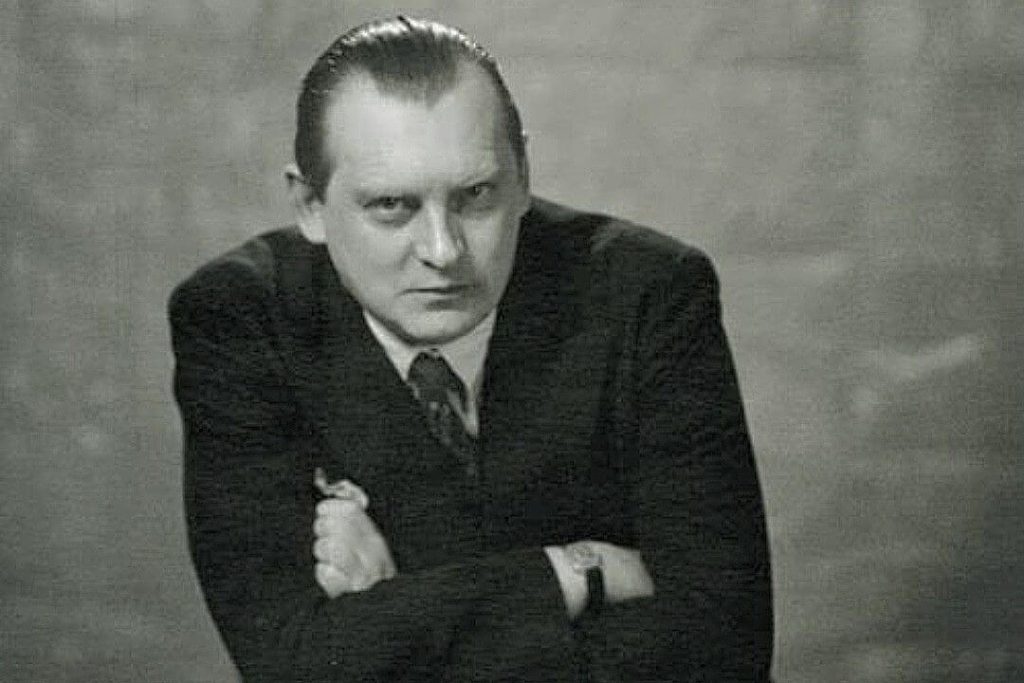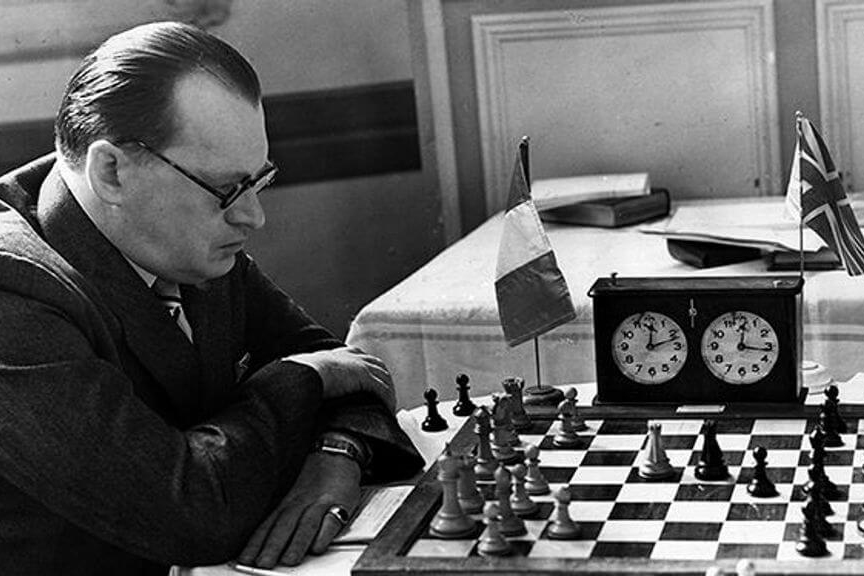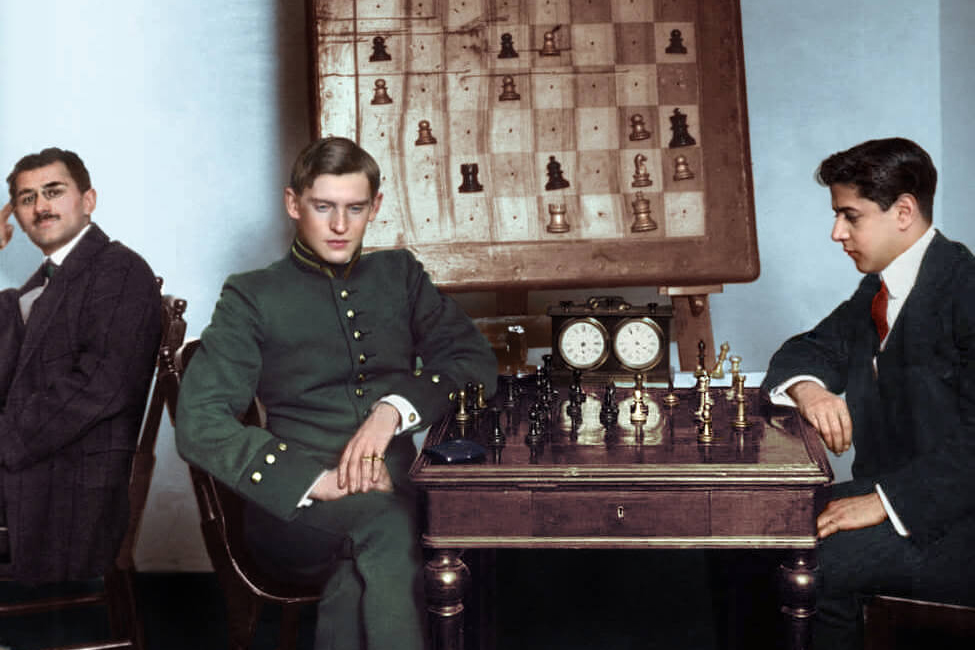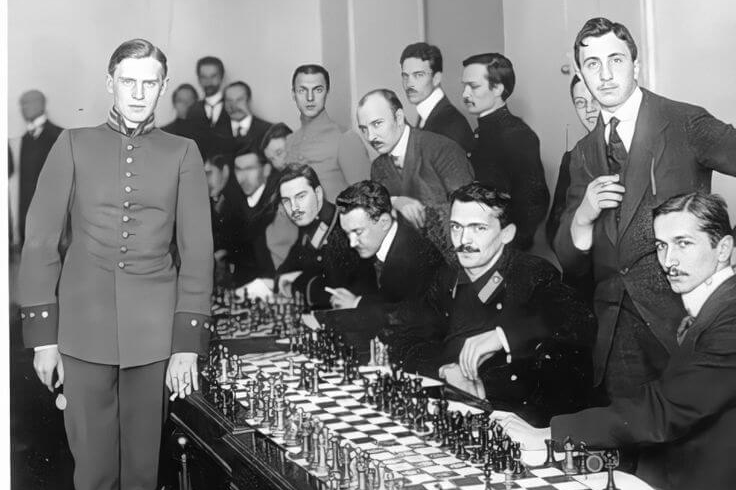No products in the cart.
Chess Players
Alexander Alekhine – The Ultimate Chess Thinker
Alexander Alekhine was a legendary chess player widely regarded as one of the greatest thinkers and tacticians in the history of the game. Born in Russia in 1892, Alekhine began playing chess at a young age and quickly rose to prominence with his unique and strategic playing style. He won the World Chess Championship in 1927 and held the title for six years before losing and regaining it again in 1937. Alekhine was known for his aggressive and innovative playing style, often taking risks and sacrificing pieces to gain an advantage over his opponents. He was also a prolific writer on the game of chess, authoring several influential books on openings and tactics. Alekhine’s legacy in the chess world continues to inspire and influence players today, and he remains a beloved and respected figure in the game’s history.
Table of Contents
Early Life and Education of Alexander Alekhine
Alexander Alekhine, born in 1892 in Moscow, Russia, was a chess prodigy and one of the greatest chess players of all time. Alekhine’s father was a wealthy landowner and his mother was the daughter of a famous opera singer. He learned to play chess at a young age and quickly demonstrated his talent by defeating experienced players. Alekhine studied law and mathematics at the University of Moscow but his passion for chess led him to devote most of his time to the game. In 1909, at the age of 17, he won the Moscow Chess Club Championship, and in 1910 he won the Russian Chess Championship.
Throughout his chess career, Alekhine was known for his unconventional playing style and aggressive tactics. He was also notorious for his controversies and scandals. In 1927, he won the World Chess Championship, but his victory was tarnished by accusations of cheating. Alekhine was accused of receiving signals from an accomplice during the match, but the allegations were never proven. During World War II, Alekhine lived in Nazi-occupied France and played in tournaments organized by the German occupiers. He also wrote articles praising the Nazi regime, which led to accusations of collaboration with the enemy. After the war, Alekhine was briefly detained by the French authorities but was eventually released and cleared of any charges.
Despite his controversies, Alekhine’s legacy in the world of chess is undeniable. He was a brilliant tactician and a master of the endgame. His games are still studied by chess players around the world, and his contributions to chess theory and strategy have had a lasting impact on the game.
Alexander Alekhine’s Introduction to Chess
Alekhine’s introduction to chess was influenced by the great chess masters of the time, including Emanuel Lasker and José Capablanca. He learned from their games and began developing his own unique style of play. Alekhine’s early games were marked by his aggressive, tactical style and his ability to find brilliant combinations on the board.
In 1907, at the age of just 15, Alekhine won the All-Russian Amateur Chess Championship. This victory brought him widespread recognition and marked the beginning of his ascent to the top of the chess world. Over the next several years, Alekhine continued to improve his game and take on strong opponents. In 1910, he took second place in the Moscow Championship and won the All-Russian Master Tournament. He went on to play in many other tournaments throughout Europe, winning several of them and establishing himself as one of the strongest chess players of his time. His introduction to chess and early years in the game set the stage for his future success and his reputation as the ultimate chess thinker.
Alekhine’s Chess Playing Style
Alexander Alekhine is renowned for his unique and innovative chess-playing style. He was a dynamic and aggressive player who was not afraid to take risks in order to secure a win. Alekhine had a strong tactical sense and a deep understanding of the game, which allowed him to calculate complex variations and combinations with ease.
One of Alekhine’s trademarks was his ability to launch devastating attacks against his opponents. He often sacrificed material in order to open up his opponent’s king and launch a decisive attack. Alekhine’s attacks were characterized by their creativity and unexpectedness, and he was known for coming up with novel ideas and moves that caught his opponents off guard. In addition to his attacking prowess, Alekhine was also a skilled positional player. He had a keen sense of the value of the different pieces on the board and was able to position them in such a way as to gain an advantage. Alekhine was a master of the endgame, and he was able to convert even the slightest advantage into a winning position. Alekhine’s playing style was heavily influenced by his extensive study of the games of the great masters who had come before him. He was particularly inspired by the games of Emanuel Lasker, and he adopted many of Lasker’s strategic ideas into his own play.
Overall, Alekhine’s playing style was characterized by a combination of tactical brilliance, positional skill, and strategic insight. His unique and innovative approach to the game of chess set him apart from his contemporaries and cemented his legacy as one of the greatest chess players of all time.
Notable Achievements and Titles in Chess
Alexander Alekhine’s chess career was marked by numerous notable achievements and titles, cementing his position as one of the greatest chess players of all time. Alekhine’s first major title came in 1927 when he won the New York Masters tournament. He went on to win several more tournaments throughout his career, including the Bad Kissingen tournament in 1928, the San Remo tournament in 1930, and the Bled tournament in 1931. Alekhine’s most significant achievement came in 1927 when he defeated José Capablanca to become the fourth World Chess Champion. He held the title until 1935 when he was defeated by Max Euwe. However, Alekhine regained the title in 1937, defeating Euwe in a rematch. He successfully defended his title against three challengers, until he lost it again in 1946 to Mikhail Botvinnik.
Legacy and Influence on the Chess World
Alexander Alekhine left a significant mark on the world of chess and his legacy continues to inspire and influence generations of chess players. His contributions to the game were not limited to his playing style or his achievements but also included his extensive writing on chess theory and history.
Alekhine’s tactical brilliance and imaginative playing style revolutionized the game, earning him the reputation as one of the greatest attacking players in the history of chess. His aggressive and unpredictable style of play, coupled with his deep understanding of chess strategy, often left opponents stunned and helpless. Alekhine’s contributions to chess theory were also significant, particularly his pioneering work on opening theory. He introduced new ideas and variations that were not previously considered, and his analysis of classical openings like the French Defense and the Sicilian Defense has become standard in modern chess theory. In addition to his playing and writing, Alekhine also had a significant impact on the development of chess tournaments and the professionalization of the game. He was instrumental in organizing some of the most prestigious chess tournaments of his time, including the AVRO tournament in 1938, which featured the eight strongest players in the world at that time.
Alekhine’s influence on the chess world is evident in the numerous tributes and accolades he has received. The Alekhine Memorial, a tournament held in his honor, has been a regular fixture on the chess calendar since 1973. In 1985, he was inducted into the World Chess Hall of Fame, and in 2012, the Russian Chess Federation named him the greatest chess player in Russian history.




